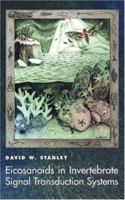CompTIA Security+ Certification Bundle, Third Edition
Select Format
Select Condition 
Book Overview
This fully updated, money-saving collection covers every objective on the CompTIA Security] exam SY0-501 and contains bonus content
This up-to-date test preparation bundle covers every objective on the latest version of the CompTIA Security+ exam. Designed to be the ultimate self-study resource, the bundle includes the current editions of CompTIA Security+ Certification Study Guide and CompTIA Security+ Certification Practice Exams and exclusive electronic content--all at a discount of 12% off of the suggested retail price.
CompTIA Security+ Certification Bundle, Third Edition, provides examinees with a wide variety of exam-focused preparation resources. Bonus content includes a quick review guide, a security audit checklist, and a URL reference list. Electronic content from the two books features author-led video training, lab simulations, and customizable test engine software that contains four complete practice exams.
- 12% cheaper than purchasing the books individually, and features content unavailable elsewhere
- Includes a 10% off exam voucher coupon, a $37 value
- CompTIA Approved Quality Content (CAQC)--provides complete coverage of every objective on exam SY0-501






















